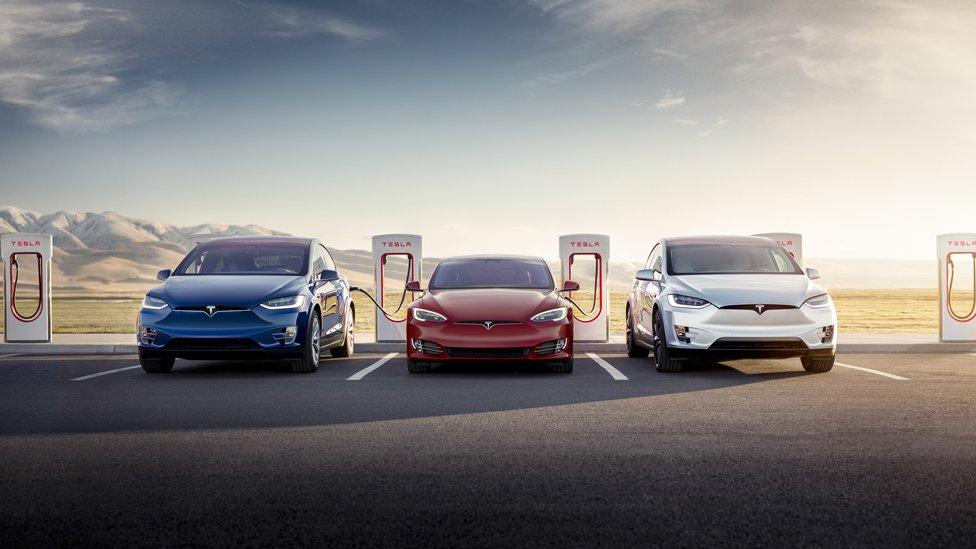Tesla reverses charging prices hike
- Published

Superchargers are dotted around the US and other countries and offer a way to recharge on long journeys
Electric-car maker Tesla has reversed a decision to drastically increase prices for its charging stations, following a backlash from customers.
Owners had complained the price rise - estimated to be around 30% - would mean electric cars risked becoming far less competitive than petrol ones.
The planned price rises will now be reduced by an average of 10% globally.
Tesla said it had listened to drivers and taken their feedback seriously.
Initially Tesla users were allowed to use its network of charging stations - called Superchargers - for free. That changed to a model that offered some free credits but since November 2018, all new Tesla vehicles have had to pay per use, unless they were bought with a referral code which came with six months of free use of Supercharging stations.
Recently chief executive Elon Musk said even the referral system was unsustainable and it was announced that prices would rise globally, based on local electricity rates and customer demand.
After complaints in its own chat forums and on social media sites, Tesla said the hike would be reduced by 10%, putting the average price in the US at $0.28 per kWh, according to website Electrek , which broke the news of the U-turn, external.
Electricity top-ups are charged per kilowatt hour (kWh) of electricity or per minute spent charging in regions where direct sales of electricity are forbidden.
Supercharger stations are dotted around the US and other countries and are located near other amenities such as shops or restaurants.
Average charge times in such stations are between 30 and 45 minutes, according to Tesla. The charges are higher than consumers would pay to charge their vehicles at home, where the vast majority of charging takes place, but are useful for those on longer journeys.
Tesla plans major expansions for its Supercharger network in Europe during 2019, with Elon Musk pledging coverage will "extend to 100% of Europe. From Ireland to Kiev, from Norway to Turkey".